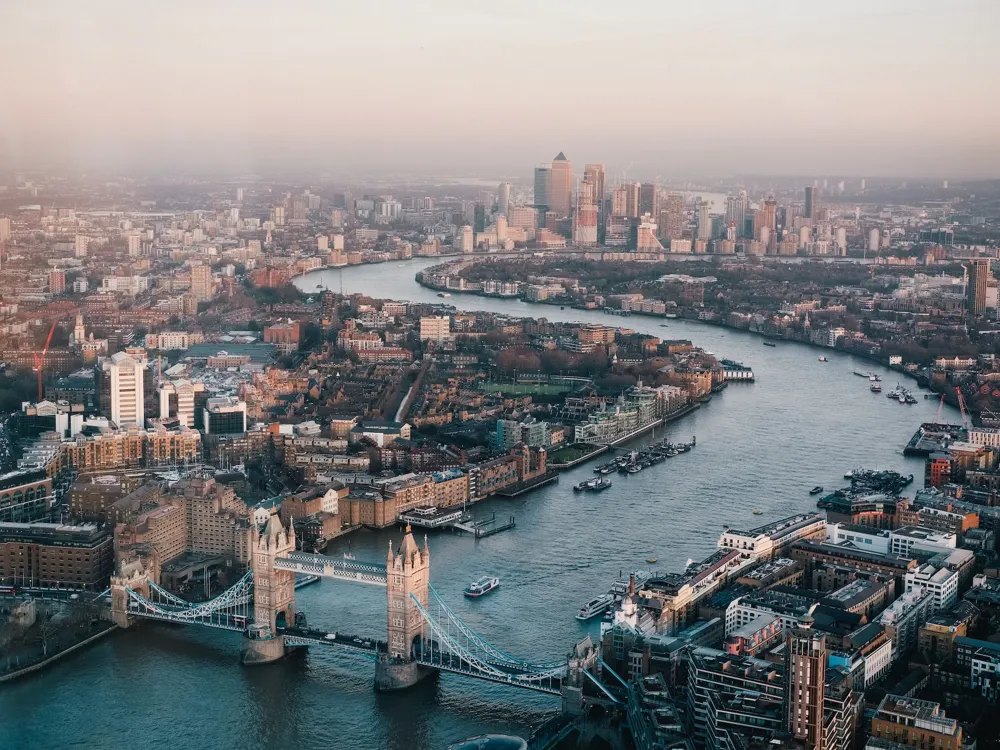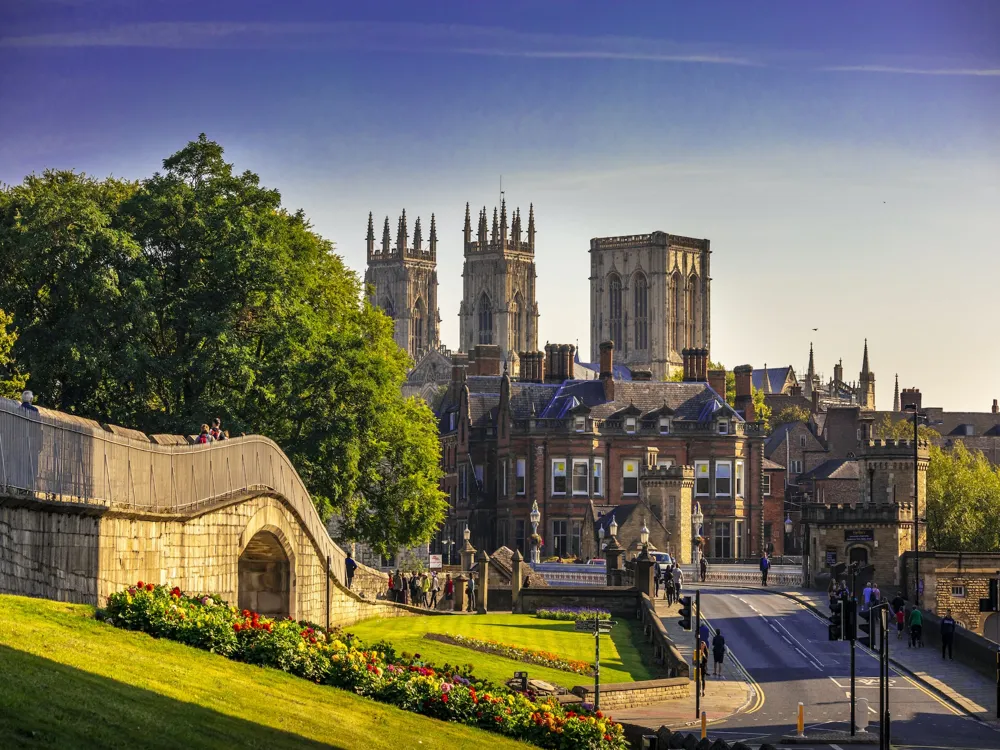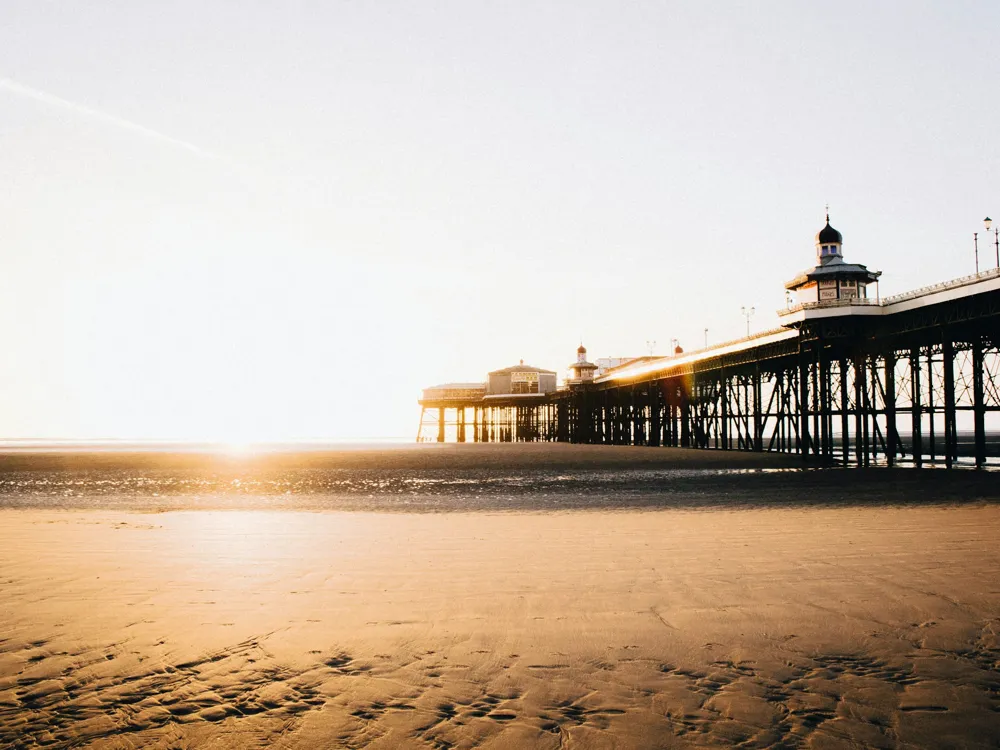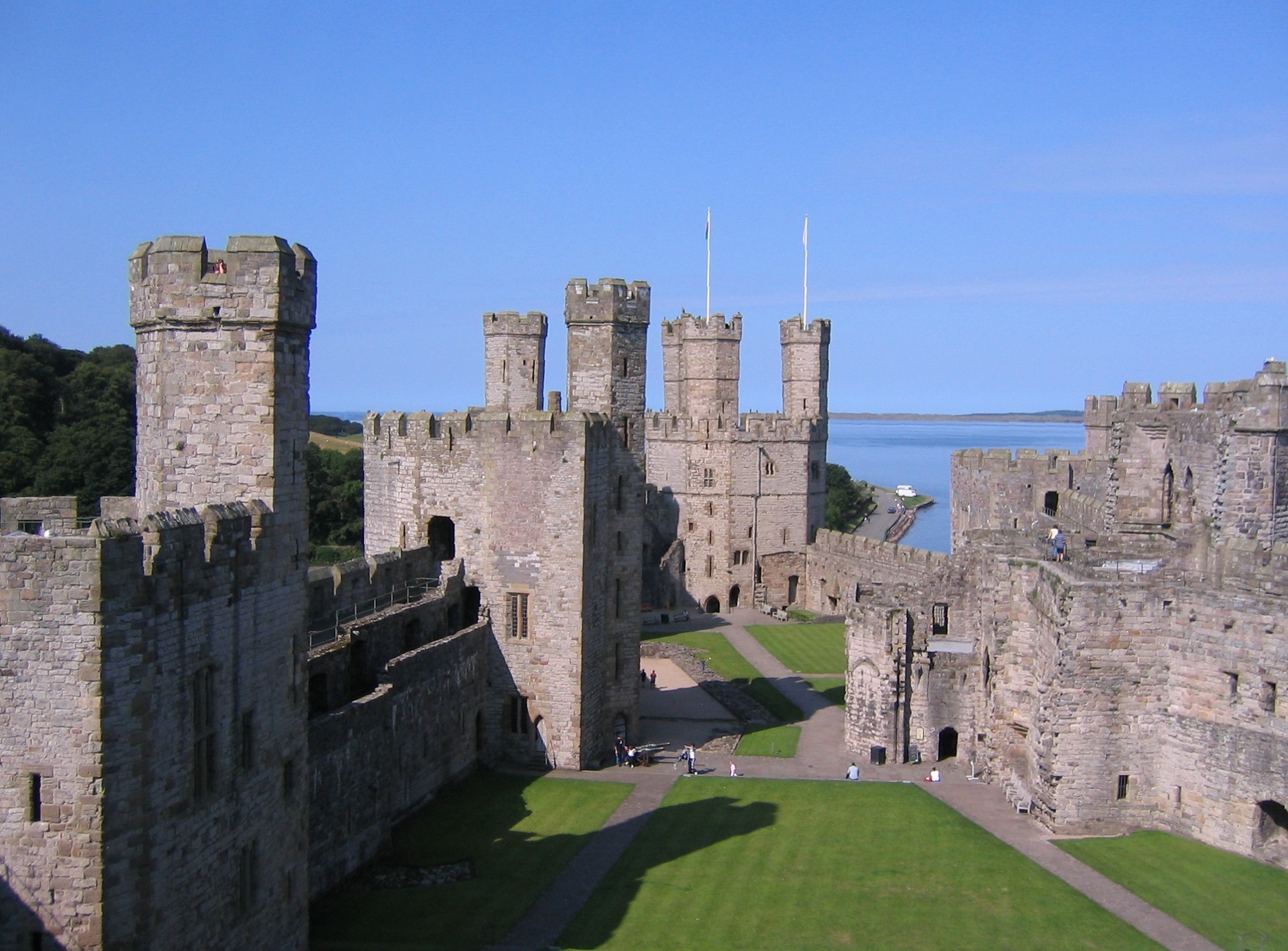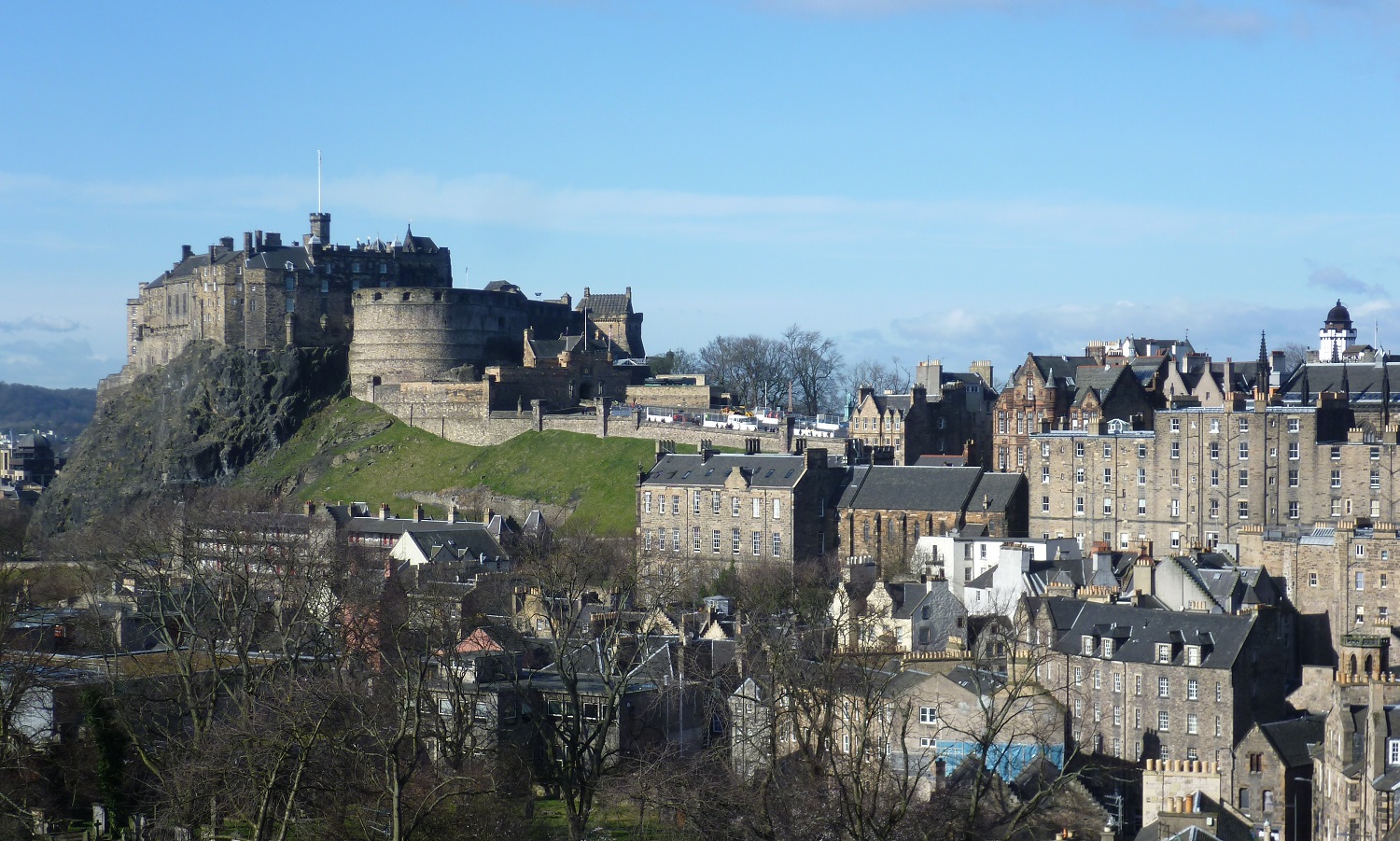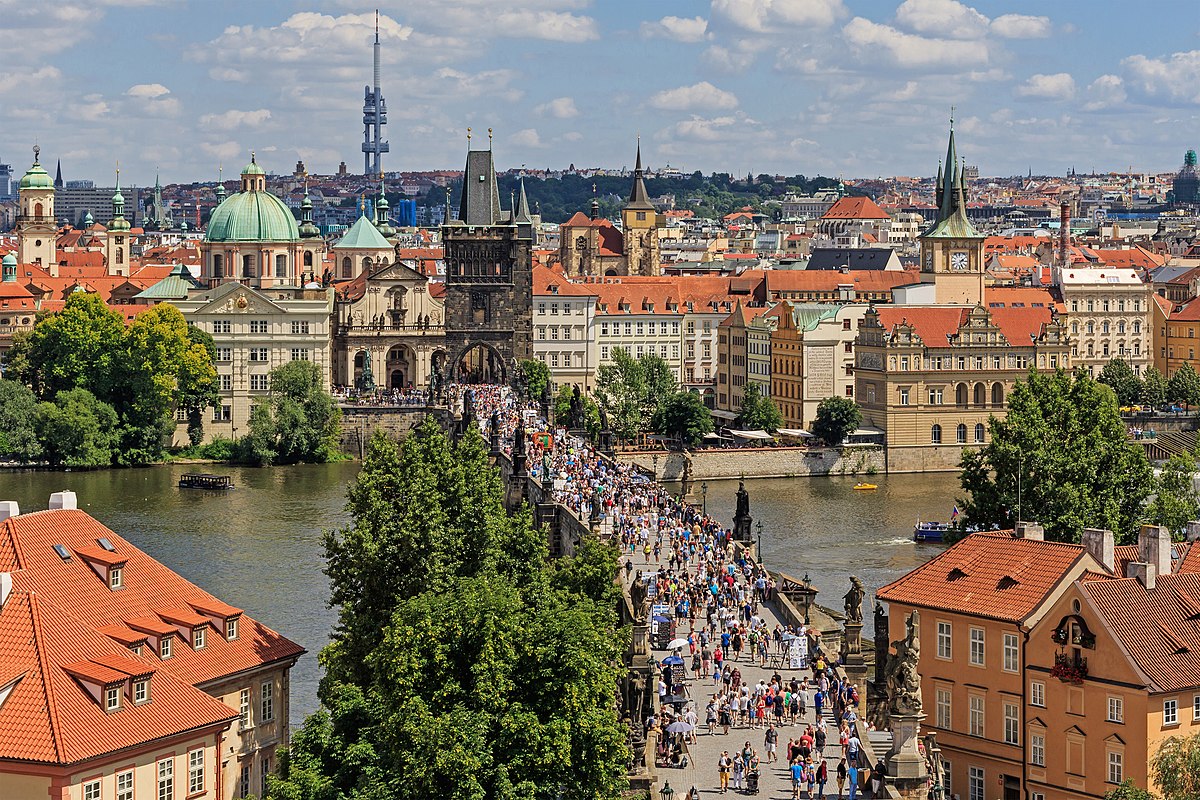What is the best time to visit England?
England, with its diverse landscapes and rich history, offers a unique experience throughout the year. Determining the best time to visit depends on your preferences and interests. Whether you're a fan of vibrant festivals, lush greenery, or cosy winters, England has something for everyone.
Spring (late March to early June) and autumn (September to November) are the ideal seasons to go to England. You'll witness the shifting colours of the autumn foliage or displays of spring flowers while avoiding the summer's busiest travel periods. It's a comfortable 48°F to 64°F in the spring and 48°F to 68°F in the autumn.
Spring (late March to early June) and autumn (September to November) are the ideal seasons to go to England. You'll witness the shifting colours of the autumn foliage or displays of spring flowers while avoiding the summer's busiest travel periods. It's a comfortable 48°F to 64°F in the spring and 48°F to 68°F in the autumn.
Autumn, from September to November, brings a different charm with its colourful foliage. The weather is still mild, and you can enjoy the beauty of the changing seasons without the summer crowds. For those who prefer a quieter experience, autumn is an excellent time to explore England's countryside and historic sites.
Winter, from December to February, offers a unique atmosphere with festive decorations and a chance of snowfall. While temperatures may be cooler, the festive spirit, holiday markets, and fewer tourists make it an appealing time to visit, especially if you enjoy a cosy winter getaway.
To make the most of your visit, consider your preferences, whether it's lively festivals, blooming landscapes, or a quiet escape, and plan accordingly.
More about the Best Time to Travel to ENGLAND
Early December brings the turning on of the Christmas lights that adorn England's towns and cities, illuminating the gloomy evenings. Christmas Day and Boxing Day (December 26) are public holidays in England; therefore, many stores will only be closed on these days. Between Christmas and New Year's, other sites and attractions can close for an extended period of time.
Travel Peak Season in ENGLAND
England's peak season, which runs from March to August, is characterised by exciting activities, celebrations, and longer days. It's an ideal time for outdoor activities and exploring iconic landmarks. However, be prepared for larger crowds at popular tourist spots.
-
Summer (June to August):
- Reasons: The summer months, from June to August, constitute the peak tourist season in England. During this time, the weather is generally mild and pleasant, making it ideal for outdoor activities and sightseeing. Popular destinations, including London, Oxford, Cambridge, and coastal areas, attract both domestic and international tourists. Tourists often explore historic sites, attend outdoor events, and enjoy the scenic beauty of the English countryside.
-
Spring (April to May) and early autumn (September to October)
- Reasons: Spring and early autumn are also popular seasons for travel in England. During these periods, the weather is typically mild, and attractions are less crowded compared to the peak summer months. Spring, in particular, is known for blooming flowers and gardens, making it an attractive time for visitors.
-
Major Events and Festivals:
- Reasons: Major events and festivals, such as the Notting Hill Carnival in August, the Wimbledon tennis championships in July, and various music and cultural festivals throughout the summer, contribute to increased tourism during specific times of the year.
Travel Offseason in ENGLAND
The off-season, from September to February, offers a quieter experience with fewer tourists. While the weather may be cooler, the charm of autumn foliage and winter festivities make it a delightful time to explore England's hidden gems without the hustle and bustle.
-
Late Autumn to Early Spring (November to March):
- Reasons: Late autumn to early spring is generally considered the offseason in many parts of England. During these months, temperatures can be colder, and there may be fewer tourists. Attractions and popular destinations, including London, may have reduced crowds, allowing visitors to explore cultural sites and historical landmarks at a more relaxed pace.
-
Midweek Travel:
- Reasons: Travelling on weekdays, especially outside of major holidays, can often provide a quieter experience. Many tourists visit England on weekends, and weekdays may offer a more serene atmosphere in cities and tourist spots.
-
November and January (post-holiday season):
- Reasons: November, after the autumn half-term holidays, and January, after the Christmas and New Year festivities, are typically quieter times for tourism. Many people have completed their holiday travel, and attractions may be less crowded.
ENGLAND Weather in Winter (November – February)
ENGLAND Weather in November
November in England signals the transition to winter with crisp temperatures and autumn foliage. It's an excellent time to experience the calm before the festive season, exploring charming villages and historic sites without the summer crowds.
ENGLAND Weather in December
December brings festive cheer to England, with Christmas markets and decorations adorning cities. While temperatures may be chilly, the holiday spirit and the chance of snow create a magical atmosphere, especially in iconic locations like London and Bath.
ENGLAND Weather in January
January sees England in the midst of winter, offering a serene ambiance with fewer tourists. Embrace the cold with winter walks, cosy pub visits, and cultural experiences, making it an ideal time for those seeking a peaceful escape.
ENGLAND Weather in February
February continues the winter charm with the possibility of snow and quieter attractions. It's an intimate time to explore historical sites, enjoy winter landscapes, and savour the cosiness of English tearooms.
ENGLAND Weather in Summers (March to June)
ENGLAND Weather in March
March marks the onset of spring in England, bringing milder temperatures and blooming flowers. It's a refreshing time to explore parks, gardens, and historical landmarks as the country awakens from winter.
ENGLAND Weather in April
April continues the springtime allure with blossoming cherry trees and vibrant gardens. The pleasant weather allows for outdoor activities, and the abundance of flowers adds a touch of romance to your English experience.
ENGLAND Weather in May
May boasts longer days and warmer temperatures, making it an ideal time for outdoor adventures. From hiking in the Lake District to exploring coastal trails, England offers a myriad of options for nature enthusiasts.
ENGLAND Weather in June
June brings the official start of summer, with the longest days and balmy temperatures. Enjoy outdoor festivals, picnics in lush parks, and exploring England's picturesque countryside during this vibrant and lively season.
Monsoon weather in England (July-October)
ENGLAND Weather in July
July welcomes summer in full swing, with warm temperatures and outdoor events. From music festivals to garden tours, England offers a diverse range of activities to suit every traveler's taste.
ENGLAND Weather in August
August continues the summer festivities with lively events and a buzzing atmosphere. Whether you're exploring historic sites or relaxing on sandy beaches, England's August weather ensures a memorable experience.
ENGLAND Weather in September
September marks the transition to autumn, offering mild temperatures and the beginning of fall foliage. It's an excellent time for a balanced experience with the remnants of summer and the emerging charm of autumn.
ENGLAND Weather in October
October embraces the autumn ambiance with cooler temperatures and colourful landscapes. Explore England's countryside adorned in fall colours, visit charming villages, and enjoy seasonal delights during this picturesque month.
Conclusion
The best time to visit England depends on your preferences and the experiences you seek. Each season offers a distinct charm, from the lively festivals of summer to the festive cheer of winter. Consider your interests, whether they're outdoor adventures, historical exploration, or a quiet escape, and plan your visit accordingly. England welcomes you with its diverse landscapes, rich history, and a plethora of experiences throughout the year.
Tourist Places to Visit in England
London
London is the capital city of the United Kingdom and is located in the southeastern part of England. Situated on the River Thames, London is a global metropolis and one of the most visited cities in the world. London is a vibrant and diverse city, offering a multicultural atmosphere and a melti...
Bath
A precious city, Bath is home to some of the greatest Georgian architecture in the United Kingdom. Located in the valley of River Avon, Bath is such a beautiful city that it has been designated as an UNESCO World Heritage Site. It is special for its hot springs and the Roman Baths. The city provides...
Liverpool
Famed for its wonderful culture, winning football teams, The Beatles and a buzzing nightlife, Liverpool is one of the major cities of UK situated in Merseyside in England. It lies within the boundaries of Lancashire. It was awarded as the European Capital of Culture in 2009 and is home to some of th...
Manchester
Lying in the heart of Greater Manchester, Manchester is a city in the North-western part of England. It is known for its impact on the historical scenario of industry and music as well as famous for its football clubs. It is a vibrant city visited by numerous tourists all around the year. The c...
York
An ancient cathedral city, York is situated in Yorkshire in England. This is the second most visited city in England after London and has some of the best preserved historical buildings and architecture in Europe. York is often referred to as the city of festivals as there are festivals going on all...
Blackpool
After London, Blackpool can be considered as the most popular tourist destination in the entire country of England. It is a popular seaside resort which has a vintage charm of its own. _There are millions of people visiting this town every year and that makes it the number one ranked holiday resort....
All Places to Visit In England
Faq
Is England crowded during the peak season?
England can be crowded from March to August, especially at popular tourist spots. Plan accordingly and consider visiting lesser-known attractions for a more relaxed experience.
What is the weather like in England during winter?
Winter in England, from November to February, brings cooler temperatures and a chance of snow. It's a festive season with holiday markets and a cozy atmosphere.
Are there outdoor activities in England during the offseason?
Yes, the offseason from September to February offers a quieter experience but is ideal for exploring England's countryside, historic sites, and enjoying winter festivities.
What are the must-visit places in England during summer?
During summer, explore iconic landmarks like the Tower of London, Stonehenge, and enjoy outdoor festivals. The Lake District and coastal areas offer stunning natural beauty.
Can I experience the fall foliage in England?
Absolutely! September to November brings vibrant fall foliage. Explore parks, gardens, and rural areas for a breathtaking display of autumn colors.

















.webp)




